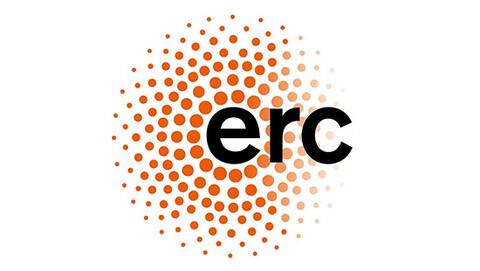
ERC Advanced Grant 2023 Awards
The ERC Advanced Grant 2023 awards were announced on April 11, 2024.
Award winners
Alessandro Garcea, professor of Latin literature and history of texts at Sorbonne University, within the research unit Rome and its Renaissance: art, archaeology, literature and philosophy (Sorbonne University), at the Faculty of Arts and Humanities, for the "LiTeRA" project (Linguistic Texts of Roman Antiquity. Collecting fragments, sources and lexicon in a digital environment).
Coordinator of the Sorbonne University Alliance "Sciences de l'Antiquité" initiative, he is also deputy director of the Latin research unit and the Mondes Antiques et Médiévaux doctoral school.
The goal of the LiTeRA project is to offer a holistic perspective on the genesis and configuration of Roman linguistic science (2nd century BC - 3rd century AD), an essential moment in the evolution of Western culture. Although we have inherited valuable sources from the late Latin grammatical tradition, this project will shed light on neglected works from the earlier Republican and Imperial periods, a vast corpus of texts that have not survived in their entirety, but have been quoted in extracts in late normative manuals, commentaries and lexicons. This first systematic edition of fragmentary Latin grammatical texts, produced with the innovative methods of pragmatic linguistics and based on the transformative potential of the digital humanities, goes far beyond the field of grammar. It provides a key to a better understanding of intellectual history, while helping us to understand better the contemporary literary texts that have been preserved in their entirety. In particular, the aim is to "historicize linguistics", based on the relationship between the objective reality of history and the ideological reality of linguistics, in order to promote a broader political and social dialogue on linguistic diversity and multilingualism, as well as on methodologies for teaching the languages of antiquity, in our contemporary world.
Jérémie Szeftel, CNRS Research Director, Jacques-Louis Lions Laboratory (Sorbonne University/Université Paris Cité/CNRS/Inria), Faculty of Science and Engineering, for the "BlaHSt" (Black Hole Stability) project.
Jérémie Szeftel's research focuses on the analysis of non-linear partial differential equations from physics, and in particular Einstein's equations of general relativity.
The discovery of black holes, first as explicit solutions of Einstein's equations of general relativity, then as possible explanations of astrophysical phenomena, has revolutionized our understanding of the Universe. From a mathematical point of view, a central question is to study the stability of these fascinating objects. In particular, the project concerns Kerr black holes, a two-parameter family of rotating black holes that are solutions of Einstein's equations. Since their discovery by Roy Kerr in 1963, the stability conjecture for Kerr black holes has become a central topic in general relativity, first during the golden age of black hole physics, and then over the last twenty years in mathematical general relativity.
These efforts have led to the recent resolution, by Jérémie Szeftel and his collaborators, of the conjecture in the low-rotation case. One of the main objectives of this project is to tackle the general case, i.e. the proof of the stability of Kerr black holes for any angular momentum. Other objectives concern the stability of black holes in other physically relevant situations, such as charged black holes, or in the presence of a cosmological constant.
